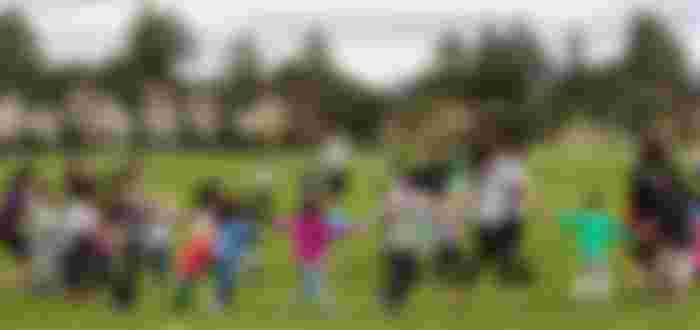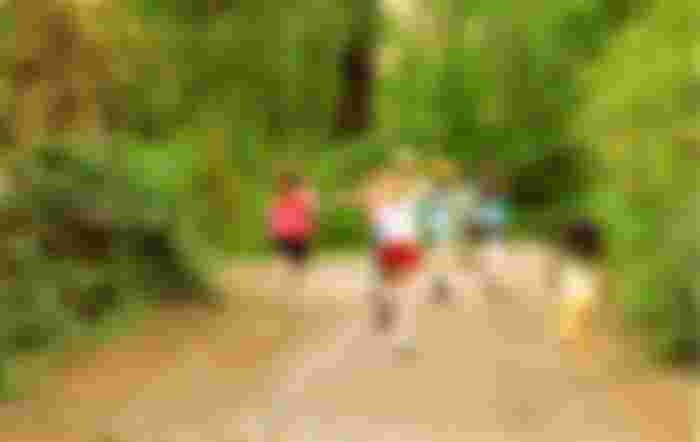Recreation is a means of relaxation of the mind and body. Engaging in one or different activities relieves day to day tension. The use of time in a creative way helps improve the skill and the development of an individual who in all phrases of life.

There are nine characteristics of recreation;
Recreation involves an Activity. The concept of activity for recreation depends on the action done mentally, physically,or emotionally.
Recreation has no single form. It offers variety of choices with endless possibilities. The only factor of individual is the motivational desire in his or her choices and the enjoyment he/she gets.
Recreation is determined by motivation. The individual determine his or her activity largely by a desire, motive, or incentive. The ultimate goal is to reach ones satisfaction and enjoyment.
Recreation occurs in unobligated time. Although an individual may be very happy in his job, it is not possible for that individual's work to be his or her recreation.
Recreation is participated voluntarily. It cannot be ordered, or imposed, or forced. Recreation is provided to open the road for an individual for self discovery, self expression, creativity, and self satisfaction.
Recreation is universally sought and practiced. Activities for recreations is extensive that they encompass the total human being regardless of sex, race, and nationality.
Recreation is flexible. It can be organized or unorganized; it can be enjoyed in a group or alone.
Recreation has no by products. The best motivation for an individual to do recreation activities is the reward after the activity which are physical health, emotional stability, or social fitness.
Health Benefits. Time spent in outdoor recreation leads to a range of benefits, from reduced obesity in rates to strengthen family ties. According to Robert Manning professor of recreation management, whether one prefers a leisurely scroll along a nature of trail or a strenuous hike up a steep mountain path, outdoor recreation sites provide the setting for physical and mental growth.
Physical Benefits. Regular outdoor activities provide a number of physical health benefits, including; lower blood pressure, reduced arthritis pain, weight loss and lowered risk of diabetes,certain cancers, osteoporosis and cardiovascular disease. A healthy weight and reduced risk of chronic disease.
Social Benefits. Along with an increase in physical activity, outdoor recreation offers the chance to socialize. For instance, bird watching incorporates several activities, including the physical movement of walking, interpreting visual and auditory input, and speaking to other bird watchers. Social settings of outdoors spaces, especially urban parks,are associated with positive experiences. Outdoor physical activity can also increase pride in the community,as well as offer the chance to meet people with similar interests.
Intellectual Benefits. Outdoor activities lead to; an increased confidence, improved creativity, and better self esteem. It rejuvenate and calming of the mind, improved outlook and increased positive effect when done in natural settings. In contrast, artificial environments may cause feelings of exhaustion, irritability, inattentiveness, and impulsively.
Emotional Benefits. Both physical activities and outdoor settings reduce stress,anxiety and depression. Spending time Excercising in a parks can leads to an increase in positive moods and a reduction in cortisol levels,a hormone released when the body feels stress. Similarly,increased access to green space for activities such as walking decreases stress..especially for children.

Recreation outdoor benefits is good for the mind. Outdoor recreation has psychological benefits,including the prevention or reduction of stress; improved self esteem,confidence and creativity; spiritual growth; and an increased sense of exhilaration,adventure and challenge from life. It is good for the body also. Getting outside provide physical benefits,such as aerobic,cardiovascular and muscular fitness,as well as improve functioning of the immune system. Better for one's social life. The great outdoors afford social benefits like bonding with like minded people who enjoy outdoor activities and feeling an increased pride in your community. It's good for the economy. Outdoor recreation pays off with economic benefits too. People who regularly participate in outdoor recreation tend to be more productive at work. Outdoor recreation creates job opportunities for others,which leads to economic growth. And the preservation of the natural areas needed for outdoor recreation increases property values. It also gives environmental awareness and involvement in environmental issues.
Outdoor education,training and recreation promote active learning through direct personal experience and offer excitement,fun adventure within a framework of safety.
Active learning and adventure outdoors can take place in a variety of environments;rural and urban and more remote. Outdoor education,training and recreation involve both young people and adults in a wide range of experiences.
Many people are heading outdoor to experience nature. Responsibility is expected in any outdoor activity time. Always remember to take care of natural things. Never destroy anything. Do not peel bark or break branches off living trees,or pull up plants by their roots,or kill animals. When looking for materials for nature projects,take only fallen leaves,branches or sticks lying on the ground,or dried up weeds. Get to know the laws in the area for picking wild plants and flowers. Pick live flowers or grasses for drying or making arrangements. But only if it is not forbidden by the law. Capture carefully bugs,spiders,worms, frogs and other animal, but don't let them die . Give it its freedom back after a short while. Learn to enjoy nature's treasures without using them up. Take pictures of things often. Never eat or taste plants or fruits found and do not touch animals unless there is an assurance that they are safe. When going off exploring,tell someone about one's destination and how long to be away. Also never go alone. Utilize the body system. And lastly always clean up after doing outdoor activity. Don't leave trash or junk scattered around. Do go into a natural place and rearrange it by moving rocks or logs or things around.
The evidence is clear and supports the work. There are opportunities to get multiple benefits from such interventions social, health, economic, environmental. Sadly due to a combination of factors relating to modern lifestyles and social circumstances people are not only becoming more at risk from diseases such as cancer, heart disease, but they are also becoming more alienated from the outdoors and consequently less able to benefit from the benefits the outdoors offer. The evidence shows that those most at risk from inequalities in heath are also most at risk in terms of inequalities in relation to access to green space. There are clear opportunities to develop win-win situations by engaging people in outdoor recreation.
It is possible to do more with less if the multiple benefit approaches are considered. However new initiatives require planning, creativity , a willingness to take risks and sound ways of capturing the outcomes of interventions with robust tools and measures that hold their own in the heath arena. Engaging with evidencing outcomes is a must, and although this can be daunting for a sector that has tended to show its effectiveness in the qualitative experience itself rather than the quantitative detail, doing this will strengthen and deepen engagement between the outdoor and health sectors. This is an area where both health and the outdoor recreation sector need to develop skills and understanding and although it is still rather patchy progress is being seen. It is important to keep on sharing good practice, this can be done by finding partners in health and social care sectors and looking for opportunities for synergy and co-production.
However outdoor recreation for all its benefits will not have an impact over night or simply because the policy makers and professionals ‘get it’. Tailoring interventions to meet individual and communities key needs is essential. Audiences can be identified and targeted through social marketing and market segmentation techniques. Embedding person-centred-care approaches to interventions is equally important.

Thanks for reading 📖
Love lots ❤️



Recreation contributes to a healthy body and spirit, as well as all of the above that you have written! We must always find some time for recreation, because we have quite a lot of benefits from it.